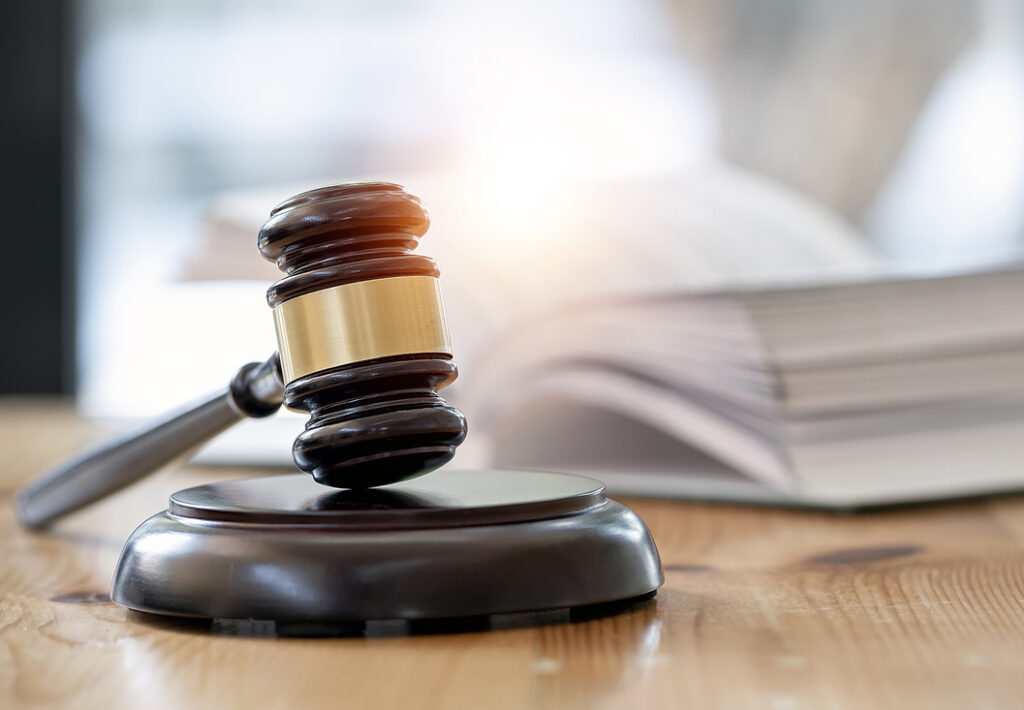
Minnesota has stringent laws and regulations against the use, possession, purchase, sale, or manufacture of controlled substances.
A controlled substance, according to Minnesota law, is a “drug, substance, or immediate precursor in Schedules I through V of section 152.02.”
Even though strict laws are in place, charges related to fentanyl, methamphetamine, and opiates are increasing.
Drug charges, or controlled substance charges, may vary in severity depending on the drug and the amount sold, possessed, manufactured, or distributed.
If you have received a controlled substance charge for drug crimes in Minnesota, you can rely on Sterle Law Office’s comprehensive experience in drug crime cases.
We have an extensive understanding of the state’s drug laws and how to maneuver them for your benefit.
Whether you have a first-degree drug crime charge for the sale of 10 or more grams of heroin and are facing 30 years in prison or a fifth-degree controlled substance charge for the sale of marijuana, our team will forge an effective defense strategy.
A brief guide to drug/controlled substance charges, the state’s legal process, and successful defense approaches are below.
It is illegal to have custody of a controlled substance without a prescription from a medical professional in Minnesota.
Drug crime penalties differ based on the controlled substance, the amount, and whether firearms or other aggravating circumstances were involved.
The selling of controlled substances like cocaine, heroin, methamphetamine, and other substances are illegal in Minnesota.

Similar to drug possession, sentences are dependent on the substance, the amount in question, and whether other aggravating factors were involved.
According to Minnesota state law, to manufacture controlled substances “in places other than a pharmacy, means and includes the production, cultivation, quality control, and standardization by mechanical, physical, chemical, or pharmaceutical means, packing, repacking, tableting, encapsulating, labeling, relabeling, filling, or by other process, of drugs.”
Drug charges range from first to fifth-degree controlled substance charges, and sentencing often includes fines and/or prison sentences.
First-degree controlled substance charges may be associated with the sale of 10 grams or more of heroin, methamphetamine, or cocaine; the sale of 50 kilograms or more of marijuana; or the sale of 50 grams or more of phencyclidine, amphetamine, or a hallucinogen.
The charge also encompasses the possession of 25 grams or more of methamphetamine, cocaine, or heroin; 100 kilograms or more of marijuana; or 500 grams or more of a narcotic.
A charge of first-degree controlled substance will receive a sentence of up to 30 years in prison and up to $1,000,000 in fines.
Should this be a second offense for the defendant, there is a mandatory four-year prison sentence with a maximum of 40 years.
The sale of three or more grams of heroin, methamphetamine, or cocaine; 25 kilograms of marijuana; 10 or more grams of a narcotic; or 10 or more grams of phencyclidine, amphetamine, or a hallucinogen will result in a second-degree controlled substance charge.
Those caught possessing six or more grams of methamphetamine, heroin, or cocaine; 50 or more grams of a hallucinogen, amphetamine, or phencyclidine; 50 or more grams of a narcotic; or 50 or more kilograms of marijuana will also be charged with second-degree controlled substance.
For second-degree controlled substance, a conviction will result in a maximum $500,000 fine and 25 years in prison. A second offense will lead to a three-year prison sentence with a maximum of 40 years.
Third-degree controlled substance charges comprise the sale of narcotics; a mixture of schedule I or II drugs; a mixture containing phencyclidine or hallucinogen; or five kilograms of marijuana.
Third-degree controlled substance charges are punishable by up to $250,000 in fines and 20 years in prison. For a second or subsequent offense, there is a required two-year prison sentence and up to 30 years.
The result of the sale of marijuana in a school zone or the mixture of a schedule I, II, or III controlled substance is a fourth-degree controlled substance charge.
For those convicted of a fourth-degree controlled substance charge, they will receive up to a 15-year prison sentence and a maximum fine of $100,000.
A fifth-degree controlled substance charge encompasses the sale of one or more mixtures including a schedule IV controlled substance or the sale of marijuana.
Fifth-degree charges can either be classified as a felony – the sale or possession of larger amounts of controlled substances – or gross misdemeanor – the possession of smaller amounts of substances.
A maximum $10,000 fine and five years in prison is the sentencing for a fifth-degree controlled substance charge.
Criminal cases for drug charges in Minnesota can lead to jury trials.
Due to the potential ramifications of a drug charge, it is imperative to retain legal counsel with a Minnesota drug crime defense attorney as early in the legal process as possible.
At Sterle Law Office, we can guide you through the process from drug crime arrests and investigation to charging, pre-trial hearings, and trial.

The prosecution must first prove you have had a controlled substance; they will send a sample for testing to a Bureau of Criminal Apprehension’s Lab and resulting labs will be provided as evidence in court. Should the sample be classified as a controlled substance, the prosecution must then aim to prove possession, distribution, or manufacturing.
Through our successes in fighting controlled substance charges, we have found many of the following practices are fruitful when developing a defense strategy with our clients:
Unreasonable searches and seizures are prohibited by the Fourth Amendment. Upon reviewing your case, we will determine if law enforcement had express permission to perform their search or obtained a valid search warrant through which they obtained the evidence. If the search was conducted illegally or the evidence was not in plain view, it is possible that it would be inadmissible in court.
It is the prosecution’s burden to prove the object or substance for which you were charged is illegal, which often requires presenting test results as evidence. There is the possiblity for faulty tests or testing procedures and scientific evidence disproving the accuracy of test results that we can address in your defense. Positive field test results can be questioned for their validity as well.

Prosecution will often utilize circumstantial evidence like scales, guns, cash, or packaging items as proof of intent to sell, drawing connections between the circumstantial evidence and your drugs or paraphernalia.
They may even rely on the use of confidential informants or multi-agency investigators.
Sterle Law Office can challenge the credibility of informants and seek errors in the investigation process.
If you were not read your Miranda rights and/or informed of your Fifth Amendment right to remain silent, our team will work to suppress any of your statements.
If you exercised your right to an attorney and law enforcement continued to question you, any statements made after the fact would likely be inadmissible in court.
Standards exist to protect innocents from being intimidated or compelled by police officers to commit a crime, which law enforcement would then use to obtain evidence to prosecute the person.
If you have been charged with manufacturing, drug trafficking, or distributing a controlled substance in Minnesota, you may experience negative impacts on your life: from lengthy prison sentences removing you from your family and community to extensive fines. Working with Sterle Law Officeto develop a vigorous defense is critical to minimizing the long-term impact on your future.
If you have a drug dependency, drug court is an option for non-violent drug offenders to promote recovery.

Drug courts are effectively a criminal justice and public health solution that addresses the root of the issue for many drug offenders in the Minnesota judicial system.
Drug courts oversee participants on their progress toward sobriety, which often involves ongoing treatment, mandatory check-in court appearances, routine drug testing, and incentives and sanctions to guide defendants toward behavioral change.